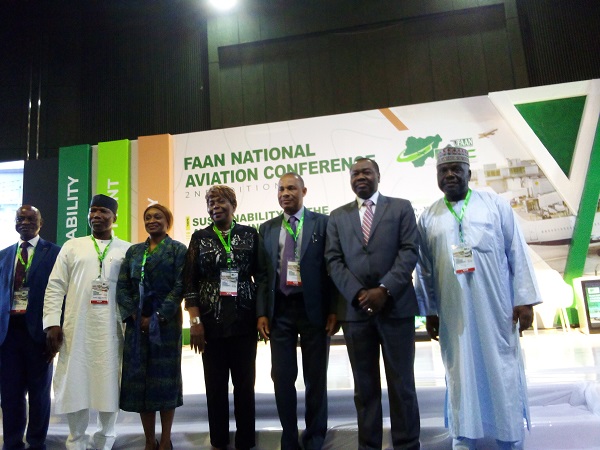
The chairperson of the Senate Committee on Aviation, Sen. Biodun Olujimi, emphasised that the aviation industry plays a significant role in Nigeria’s economy. She highlighted that the industry contributes approximately four per cent to the country’s Gross Domestic Product (GDP) and provides employment opportunities for around 200 thousand citizens.
Olujimi acknowledged the aviation industry’s vital role in fostering economic growth by establishing essential transportation links across various sectors and supporting tourism and foreign investment.
She emphasised that the sector not only employs aviation workers but also creates livelihood opportunities for service providers associated with the industry. Moreover, the aviation industry’s rapid growth acts as a catalyst for foreign direct investment and facilitates international trade through efficient transportation services.
While discussing the challenges faced by the aviation industry, Olujimi mentioned issues such as worker picketing, constant demolition and destruction around airports, encroachment on airport property, and significant increases in airfares. She urged the government to take proactive measures to address these challenges, particularly the encroachment issue, to prevent further escalation.
The senator stressed the importance of striking a balance to ensure affordable airfares, as steep price hikes could negatively impact the industry. She called for efforts to enhance safety and security within the aviation sector, emphasising that ongoing initiatives are being pursued to achieve this objective.
During the conference, the Minister of Aviation, Sen. Hadi Sirika highlighted the administration’s commitment to revamping the aviation industry. He explained that a comprehensive roadmap had been developed to guide the industry’s transformation, with various projects nearing completion. These projects include runway construction and rehabilitation, the construction of new international terminals, and the procurement and deployment of world-class safety and security equipment and facilities at airports. The ministry has also focused on staff recruitment, training and capacity-building.
The managing director of the Federal Airport Authority of Nigeria (FAAN), Capt. Rabiu Yadudu emphasised the importance of sustainability in the aviation industry. He described sustainability as a concept that encompasses progress, endurance, stability, capacity and constituency.
According to Yadudu, the conference aimed to bring together industry stakeholders to address the challenges hindering the growth and development of the aviation sector. It also provided a platform for the private sector to explore investment opportunities and generate returns on their investments.
He emphasised that collaboration, control, communication, and commitment among all stakeholders were crucial for achieving sustainability in the aviation industry. He encouraged everyone to continue their current efforts to ensure a prosperous future for the sector.
In conclusion, Olujimi’s remarks shed light on the aviation industry’s significant contribution to Nigeria’s GDP and job creation. The conference served as a platform to address challenges and foster collaboration among stakeholders to ensure the industry’s sustainable growth. The commitment of the government, as well as industry stakeholders, was highlighted as essential for achieving progress and prosperity in the aviation sector.

